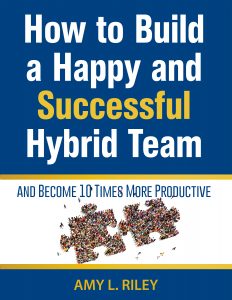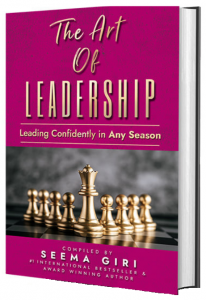Embrace Your Weaknesses
If you want to be a powerful leader, embrace your weaknesses.
Weaknesses are any activities that we don’t do well or that drain us of energy. We want to include “tasks that we don’t enjoy” in our definition of weakness because completing those tasks depletes our engagement and energy. They weaken us. And, we all have activities that we don’t enjoy. Every human does. Not only should we admit we have them, we should embrace our weaknesses.
What? Shouldn’t we hide them, secretly compensate for them and never ever mention them to anyone?
No. You want yourself and those around you to be really clear about your weaknesses. You want to talk about them. Often.
Why? Why would we want to focus others on our weaknesses? Turns out there are a number of reasons.
When you can clearly and specifically tell others what are and are not strength areas for you, then others believe wholeheartedly that you’re good at what you say you are.
I believe I gain business partners’ trust when I share that I’m uncertain where to focus during prospective client conversations when the discussion is at a seemingly ambiguous 100,000-foot level. Yet, when objectives are clarified at the 10,000-foot level, I’m the person who can translate those objectives into a custom solution design. When I’m not trying to say I’m great at everything, I can see partners trust my self-assessment and are readily willing to bring me in to work in my stated sweet spot.
Understanding your weaknesses helps you distinguish your unique value.
You’re not trying to be all things to all people, which enables you to be specific about where you do add value. This information helps you build your personal brand over time.
If you’re known as the leader who solves complicated problems or as the leader who knows how to develop a strong team; you’ll find yourself brought into situations calling for your strengths again and again. Others will come to you when they are faced with the challenges with which you excel.
When you know your weaknesses and are willing to talk about them, then you can strategize with others about how to handle them.
When addressing weaknesses, you’ll likely want ideas from others (because this is where you’re not strong!). Brainstorm with others: How can you fill any necessary gaps? Can others on the team step up? Are there opportunities to automate? Outsource? Use a different approach? A combination of ideas? Let those who have better experience and expertise lead the way in looking for win/win solutions. They’ll appreciate the opportunity to strategically contribute and respect you for proactively addressing your inherent weaknesses.
You’ll be energized each day as you work in your strength areas and avoid engaging in your weaknesses.
Your strength work tends to raise your enthusiasm, passion, curiosity and tenacity. Your interest in the activity has you digging in and time passes by quickly and enjoyably. And, it’s rewarding to see how, when you leverage your strengths, you provide the best value to your team, your projects and your organization.
Focusing on your strengths serves you and those around you. If you want to be a powerful leader, embrace your weaknesses.
















 A Summary of The Courage of a Leader® 4 Pillars
A Summary of The Courage of a Leader® 4 Pillars




